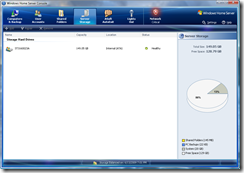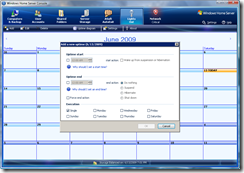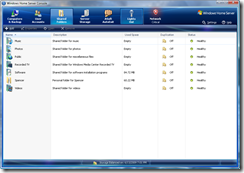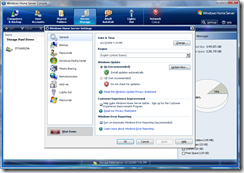After upgrading my desktop PC, another good result is I have a ton of spare parts laying around. Enough for two complete PC’s actually, so I thought it might be fun to build a test system for Windows Home Server. I have always wanted to have a home server going, but I wanted to test it first before committing to it.
I took a Celeron D in a MicroATX Gigabyte motherboard, about 1GB of RAM, and put it in a spare PC case. I loaded up WHS and got it installed fairly quickly. The only issue I had was getting it to recognize the LAN drivers. I eventually had to download some from Intel and transfer them over via a USB drive. After that, everything was smooth.
The Home Server Console which is installed on your client PC’s is pretty slick. It has a user-friendly UI and can be extended using community add-ins. One such add-in is a power management system to where I can set the WHS box to hibernate and wake at certain times each day to save power.


The Console installation on other PC’s was quick, and gives you access to the shared folders on the network. It’s pretty handy to have all your files, including media such as music and videos, in a central location that you can access virtually anywhere in your home, or via the internet if you choose. The next feature I need to try is the backing up of the PC’s on the network, which really could be worth the time to build the WHS box.


So my initial impressions are pretty favorable. The easy setup is a big plus, and is much simpler than trying to connect all your PC’s via one desktop. I will continue to check it out and give some more impressions later.